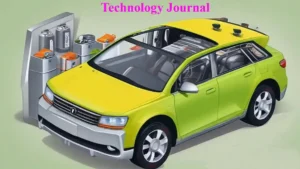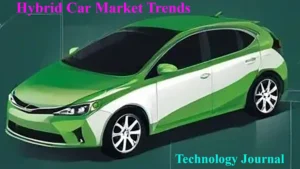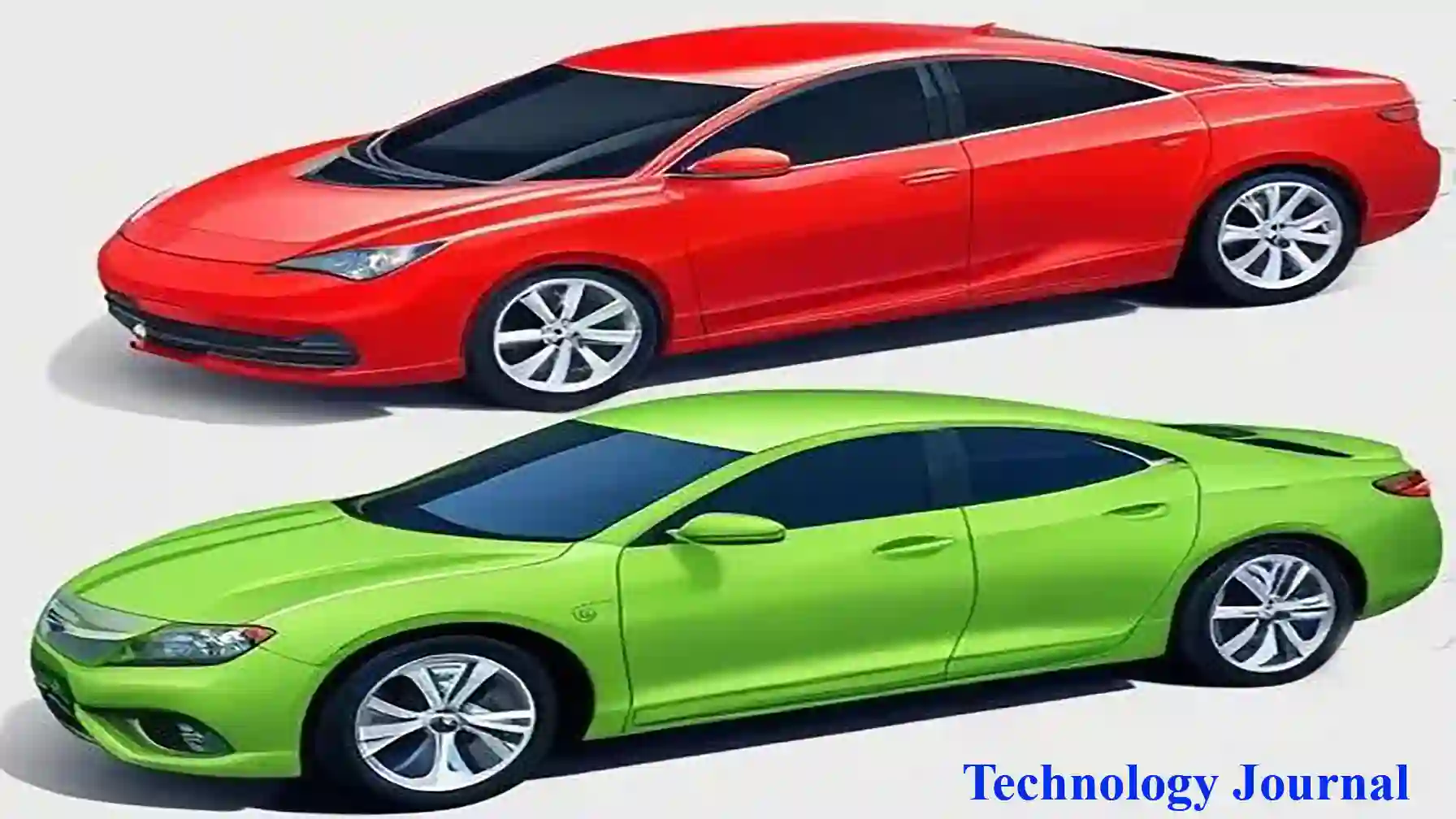Welcome to our exploration of the world of hybrid cars – where innovation meets sustainability for a greener tomorrow. If you’re curious about the benefits and mechanics behind these eco-friendly vehicles, you’ve come to the right place. In this blog post, we’ll take a closer look at why driving a hybrid car is not just a trend but a smart choice for both your wallet and the planet. So, buckle up, let’s dive into the fascinating realm of hybrid vehicles!
Hybrid vehicles offer a range of benefits that make them an attractive option for environmentally-conscious drivers. One key advantage is their superior fuel efficiency compared to traditional gas-powered cars. By combining an internal combustion engine with electric power, hybrids can achieve impressive mileage and reduce fuel costs significantly.
Additionally, hybrid cars produce lower emissions, contributing to cleaner air and a healthier environment. This reduced environmental impact is especially crucial in combating climate change and preserving natural resources for future generations. Moreover, the regenerative braking system in hybrids captures energy that would otherwise escape during braking, further enhancing their efficiency.
In terms of performance, many hybrid models provide a smooth driving experience with instant torque delivery from electric motors. This not only improves acceleration but also contributes to a quieter ride overall. With advancements in technology and increasing consumer demand for sustainable transportation options, the future looks bright for hybrid cars on the road ahead.
Hybrid Vehicle Power Train Configurations:
Hybrid cars come in different powertrain configurations that determine how the internal combustion engine and electric motor work together. One common setup is the parallel hybrid, where both the engine and motor can directly drive the wheels. In contrast, a series hybrid relies solely on the electric motor to propel the vehicle while using the engine as a generator to recharge the battery.
Another configuration is known as power-split or series-parallel hybrid, combining elements of both parallel and series systems for optimized efficiency. Each configuration has its strengths and weaknesses in terms of performance, fuel economy, and overall driving experience. Understanding these distinctions can help consumers choose a hybrid car that best suits their needs and preferences when it comes to eco-friendly transportation solutions.
Parallel Hybrid
When it comes to hybrid vehicle powertrain configurations, the parallel hybrid is a popular choice among automakers. In a parallel hybrid system, both the gasoline engine and electric motor are connected to the transmission and can work together to propel the vehicle.
This setup allows for seamless blending of power sources, providing a balance between fuel efficiency and performance. During acceleration, the electric motor helps the gasoline engine, thereby reducing fuel consumption and emissions.

One key advantage of a parallel hybrid is its ability to operate solely on electric power at low speeds or when cruising, further enhancing its efficiency. This configuration also allows for regenerative braking, where energy is captured during deceleration and used to recharge the battery.
Parallel hybrids offer a practical solution for drivers looking to reduce their carbon footprint without compromising on driving experience.
Series Hybrid
Hybrid cars come in different powertrain configurations, one of which is the Series Hybrid. In a Series Hybrid, the internal combustion engine solely generates electricity to power an electric motor that moves the vehicle. This setup eliminates the direct mechanical connection between the engine and wheels found in traditional vehicles.
Also Read: How Technology is Revolutionizing the Instrument Cluster in Modern Cars
The Series Hybrid offers increased fuel efficiency by optimizing how energy is generated and utilized within the vehicle. When driving at low speeds or in stop-and-go traffic, this configuration excels as it allows for seamless switching between running on battery power alone or using both the engine and electric motor together.
By relying more on electricity than gasoline, Series Hybrids contribute to reducing emissions and promoting cleaner air quality. This technology plays a crucial role in addressing environmental concerns while meeting performance standards expected from modern vehicles.
Innovative advancements like Series Hybrids continue to drive progress towards sustainable transportation solutions that prioritize efficiency without compromising on power or convenience for drivers.
Power-Split or Series-Parallel Hybrid
In the world of hybrid cars, the Power-Split or Series-Parallel Hybrid configuration stands out for its efficiency and versatility. This innovative design combines elements of both parallel and series hybrids, offering the best of both worlds.
The Power-Split system allows for seamless switching between electric power, gasoline power, or a combination of both. This dynamic control optimizes fuel efficiency while providing ample power when needed.
Unlike traditional parallel hybrids that rely solely on either the electric motor or the combustion engine, the Series-Parallel Hybrid intelligently balances power sources based on driving conditions. This results in a smoother driving experience and enhanced overall performance.
By integrating advanced technology and intelligent engineering, Power-Split hybrids offer drivers a compelling solution that maximizes fuel economy without compromising on power or range.
How Hybrid Cars Work?
Hybrid cars operate using a combination of an internal combustion engine and an electric motor. The coordination between these two power sources allows for improved fuel efficiency and reduced emissions. When the vehicle accelerates, the electric motor kicks in to assist the engine, providing extra power while consuming less fuel.
Hybrid cars feature regenerative braking, capturing energy during braking and storing it in the battery for later use. This process maximizes energy efficiency by recycling power that would otherwise dissipate as heat.
The environmental impact of hybrid car batteries has been a topic of discussion. While they do contain materials like nickel and lithium, advancements are being made to enhance their recyclability and reduce their overall footprint.
Hybrid vehicles offer significant reductions in fuel consumption and emissions compared to traditional gas-powered cars. Their innovative technology contributes to a cleaner environment without compromising on performance or convenience.
Regenerative Braking in Hybrid Cars
Hybrid cars feature a technology called regenerative braking, which allows the vehicle to recover energy typically lost during braking. When you step on the brakes in a hybrid car, the electric motor functions as a generator, converting kinetic energy into electricity.
Hybrid cars store this electricity in the battery for later use when accelerating or driving at low speeds, improving fuel efficiency and reducing emissions by capturing and reusing energy that would otherwise be wasted.
Regenerative braking also helps extend the life of brake pads by reducing wear and tear on traditional friction-based braking systems. This innovative technology not only enhances driving efficiency but also contributes to a greener environment by minimizing energy waste.
Hybrid cars and the Environmental Impact of Their Batteries
Hybrid car batteries play a crucial role in the environmental impact of these vehicles. The production and disposal of hybrid batteries are areas that raise concern among environmentally conscious consumers. While hybrid cars aim to reduce emissions during operation, the manufacturing process of their batteries can have negative implications.
The materials used in hybrid car batteries, such as lithium and cobalt, are sourced through mining processes that can be detrimental to the environment. Additionally, the disposal of these batteries at the end of their lifespan raises questions about proper recycling methods to minimize harm.
Efforts are being made by manufacturers to develop more sustainable battery options with lower environmental impacts. Innovations like solid-state or recyclable batteries could potentially address some of these concerns moving forward.
As technology advances and awareness grows, finding ways to mitigate the environmental impact associated with hybrid car batteries remains an ongoing challenge for both manufacturers and consumers alike.
Fuel Consumption and Emissions Reductions
Hybrid cars are known for their impressive fuel efficiency, helping drivers save money on gas in the long run. By combining a traditional gasoline engine with an electric motor, hybrid vehicles can achieve significantly higher miles per gallon compared to conventional cars.
The seamless integration of both power sources allows hybrids to optimize fuel consumption by leveraging the electric motor at lower speeds and switching to the gasoline engine when more power is needed. This intelligent system results in reduced emissions as well, making hybrid cars an eco-friendly choice for environmentally-conscious drivers.
Furthermore, advancements in hybrid technology have led to even greater improvements in fuel economy and emissions reductions over the years. With ongoing research and development focused on enhancing performance while minimizing environmental impact, hybrid vehicles continue to play a crucial role in promoting sustainability within the automotive industry.
Benefits of Hybrid Cars:
Hybrid cars offer various benefits that cater to both the driver and the environment. One significant advantage is their reduced carbon footprint, contributing to cleaner air quality and lessening greenhouse gas emissions. This positive impact aligns with global efforts towards a more sustainable future.
Moreover, hybrid vehicles typically consume less fuel than traditional gasoline-powered cars, ultimately saving drivers money on fuel expenses in the long run. The efficiency of hybrid technology allows for better mileage while emitting fewer pollutants into the atmosphere.
Additionally, many governments provide incentives for purchasing hybrid cars such as tax credits or rebates, encouraging individuals to make eco-friendly choices when selecting a vehicle. These incentives not only benefit the buyer financially but also promote environmentally conscious decisions within society.
Owning a hybrid car presents numerous advantages that extend beyond personal convenience to include environmental preservation and financial savings in the broader scope of transportation innovation.
Environmental Issues
Hybrid cars frequently receive praise for being a more environmentally-friendly choice when contrasted with traditional gasoline vehicles. One of the key environmental issues surrounding hybrid cars is the reduction in greenhouse gas emissions.
By incorporating an electric motor alongside a combustion engine, hybrid cars can significantly decrease their carbon footprint. This leads to lower levels of harmful emissions being released into the atmosphere, helping to combat air pollution and reduce overall environmental impact.
Moreover, hybrid vehicles promote energy efficiency by utilizing both electric power and gasoline. This dual-power system allows for improved fuel economy, resulting in less reliance on fossil fuels and ultimately contributing to a cleaner environment.
In addition to reduced emissions, many hybrid models also incorporate eco-friendly materials in their construction. These sustainable practices further support efforts towards minimizing waste and promoting greener manufacturing processes within the automotive industry.

Misleading Advertising in Adoption
Misleading advertising in the adoption of hybrid cars is a significant issue that consumers need to be aware of. Some car manufacturers may overstate the fuel efficiency or environmental benefits of their hybrid vehicles in their marketing campaigns. This can create unrealistic expectations among potential buyers and lead to disappointment when the actual performance does not match the advertised claims.
It’s essential for consumers to do thorough research and look beyond flashy advertisements before making a decision about purchasing a hybrid car. Reading reviews from independent sources and comparing data on fuel efficiency and emissions can help individuals make informed choices based on accurate information rather than misleading promotions.
By being cautious and skeptical of exaggerated advertising claims, consumers can ensure they are investing in a hybrid vehicle for its actual benefits, such as reduced fuel consumption and lower emissions, rather than falling for deceptive marketing tactics that may not reflect reality.
Raw Materials and Increasing Costs
Hybrid cars are innovative vehicles that combine electric and gasoline power to reduce emissions and improve fuel efficiency. However, the production of hybrid car batteries involves rare earth metals like lithium and cobalt, which come with environmental concerns due to mining practices.
The increasing demand for these raw materials has led to rising costs in the manufacturing of hybrid vehicles. As a result, some critics argue that the environmental benefits of hybrids may be offset by the ecological impact of extracting these resources.
Also Read: Charging Ahead: The Key Players in Advancing Battery Technology
Manufacturers are exploring ways to mitigate these challenges by investing in research on alternative battery technologies or recycling methods to reduce dependency on finite resources. This shift towards sustainable practices is crucial in ensuring the long-term viability of hybrid cars in an evolving automotive market.
Hybrid Cars in the Market:
Looking for a hybrid car that suits your needs? There is a wide array of options available in the market to choose from. Toyota, a leader in hybrid technology, provides an impressive lineup of hybrid vehicles known for their reliability and fuel efficiency.
From the iconic Prius to the spacious RAV4 Hybrid, there is a Toyota hybrid for every lifestyle. Other manufacturers like Honda, Hyundai, and Ford also offer compelling hybrid models with advanced features and competitive pricing.
In 2024 and 2025, some of the best-performing hybrid cars include the Toyota Prius Prime, Honda Accord Hybrid, and Ford Escape Hybrid. These vehicles incorporate cutting-edge technology to deliver exceptional fuel economy without compromising on performance or comfort.
Whether you prioritize eco-friendliness or simply want to save on gas costs, exploring the diverse selection of hybrid cars in today’s market can help you find the perfect balance between sustainability and practicality.
Toyota Hybrid Cars Lineup
Toyota has been a pioneer in the hybrid car market, offering a diverse lineup of eco-friendly vehicles that cater to different needs and preferences. From the iconic Prius to the versatile RAV4 Hybrid, Toyota has solidified its reputation as a leader in hybrid technology.
The Prius family includes various models like the Prius Prime, offering plug-in capability for extended electric driving range. The Camry Hybrid combines fuel efficiency with comfort and style, appealing to those looking for a midsize sedan with green credentials.
For those seeking an SUV option, Toyota offers the Highlander Hybrid and RAV4 Hybrid, providing ample space without compromising on fuel economy. The Corolla Hybrid appeals to compact car enthusiasts who want a greener alternative for their daily commute.
With Toyota’s commitment to innovation and sustainability, their hybrid cars continue to set the bar high in the industry, making eco-conscious driving accessible and stylish.
Best Hybrid Vehicles of 2024 and 2025
The hybrid car market is experiencing a surge of innovation, with automakers constantly pushing boundaries in fuel efficiency, performance, and technology. Here’s a look at some of the most compelling hybrid options for 2024 and 2025, categorized by year:
2024 Standouts:
-
- Toyota Prius Prime: This iconic hybrid remains a top choice for 2024, boasting an impressive EPA-estimated combined fuel economy of 57 mpg and an available plug-in option that extends electric driving range for short commutes without relying solely on gasoline.
- Honda Accord Hybrid: Combining a spacious interior with a comfortable ride, the 2024 Honda Accord Hybrid offers exceptional fuel efficiency with an EPA-estimated combined rating of 48 mpg. It’s a perfect choice for those seeking a practical and eco-friendly sedan.
- Hyundai Ioniq Hybrid: The 2024 Hyundai Ioniq Hybrid delivers a balance of efficiency and performance, achieving an EPA-estimated combined fuel economy of 58 mpg. It boasts a range of advanced safety features, earning a Top Safety Pick designation from the Insurance Institute for Highway Safety (IIHS).
2025 Predictions:
-
- Next-Gen Hyundai Ioniq Lineup: The next generation of the Hyundai Ioniq lineup, scheduled for release in 2025, is expected to raise the bar even further. While manufacturers remain tight-lipped on specifics, rumors suggest significant improvements in both fuel economy and electric driving range.
- Ford Escape Hybrid: Another highly anticipated model for 2025 is the Ford Escape Hybrid. This versatile SUV combines practicality, fuel efficiency (with an expected EPA estimate of around 40 mpg combined), and eco-friendly credentials, making it a compelling option for families or those seeking a hybrid SUV.
Additional Considerations:
While these are some of the most promising hybrid options, it’s important to conduct thorough research before making a decision. Consider the following additional factors:
-
- Price Range: Hybrid cars typically have a higher starting price than traditional gasoline-powered models. However, fuel savings over time and potential tax credits can offset the initial cost.
- Test Drive: Experience the performance and features firsthand by taking a test drive. This helps assess aspects like comfort, handling, and acceleration.
- Online Resources: Utilize online resources like Kelley Blue Book or Edmunds to compare different hybrid models, find deals, and access detailed specifications like cargo space or horsepower.
Remember, the “best” hybrid car depends on your individual needs and priorities. By considering fuel efficiency, features, safety ratings, budget, and lifestyle, you can find the perfect hybrid vehicle to navigate the road towards a more sustainable future.
You may also like to read: Electric Vehicles: Exploring Advantages, Challenges, and Future Trends
Conclusion:
Hybrid cars offer a myriad of benefits that make them an attractive option for environmentally-conscious consumers. With the ability to switch between gasoline and electric power, hybrid vehicles provide improved fuel efficiency and reduced emissions compared to traditional gas-powered cars.
As technology continues to advance, hybrid cars are becoming more accessible and affordable for a wider range of drivers. With a variety of models available from manufacturers like Toyota, the market for hybrid vehicles is expanding rapidly.
Driving a hybrid car not only helps reduce your carbon footprint but also allows you to save money on fuel costs in the long run. By considering all the advantages that come with owning a hybrid vehicle, it’s clear that these eco-friendly cars are paving the way towards a greener future for transportation.








